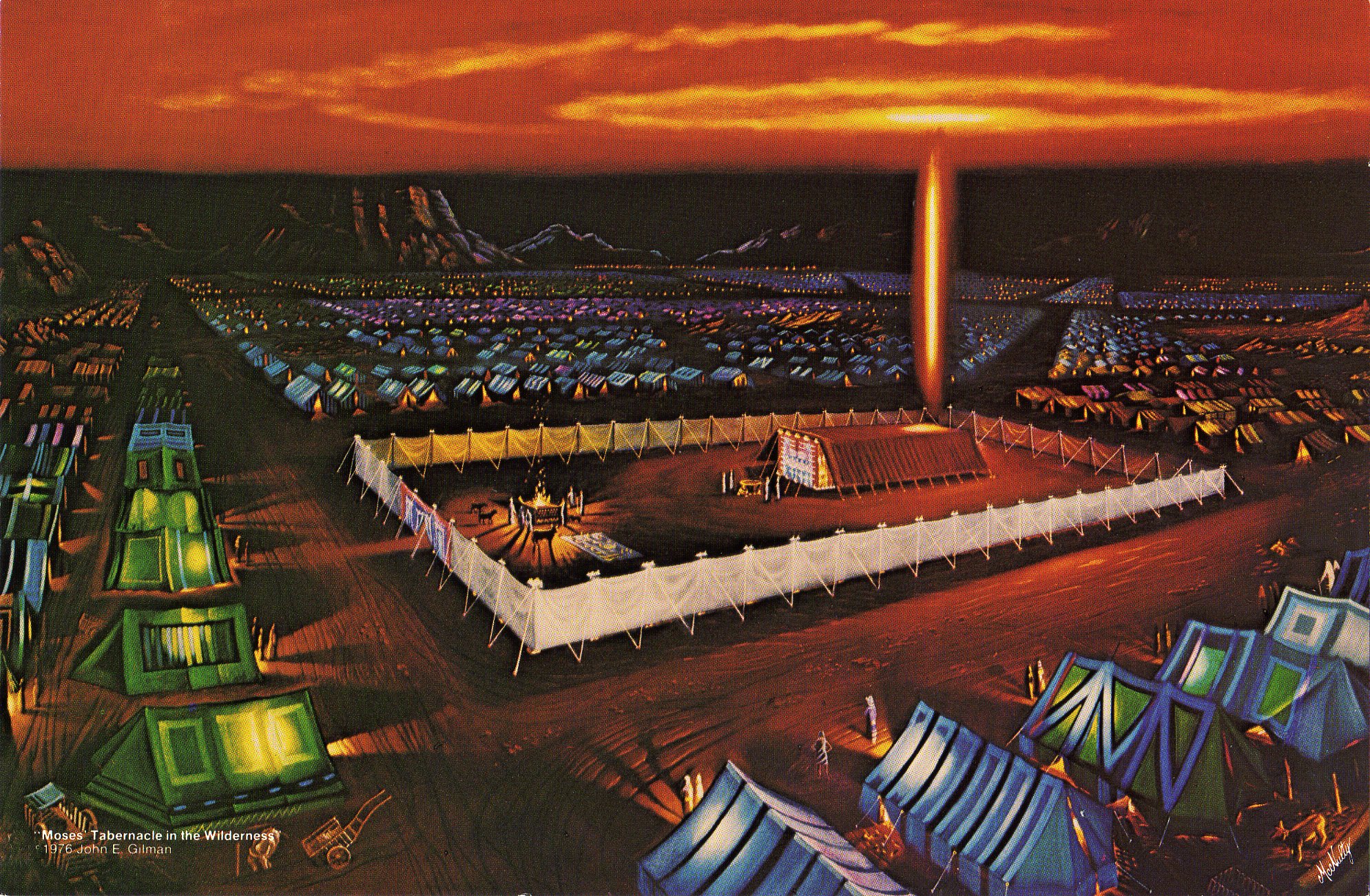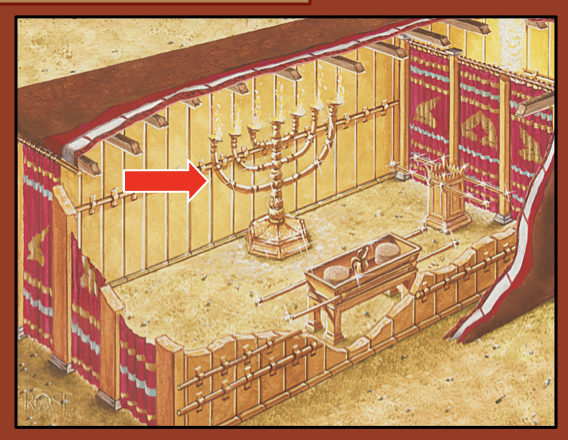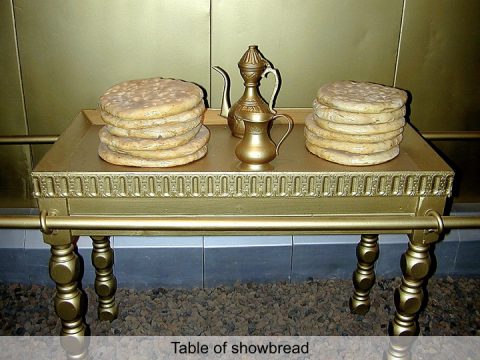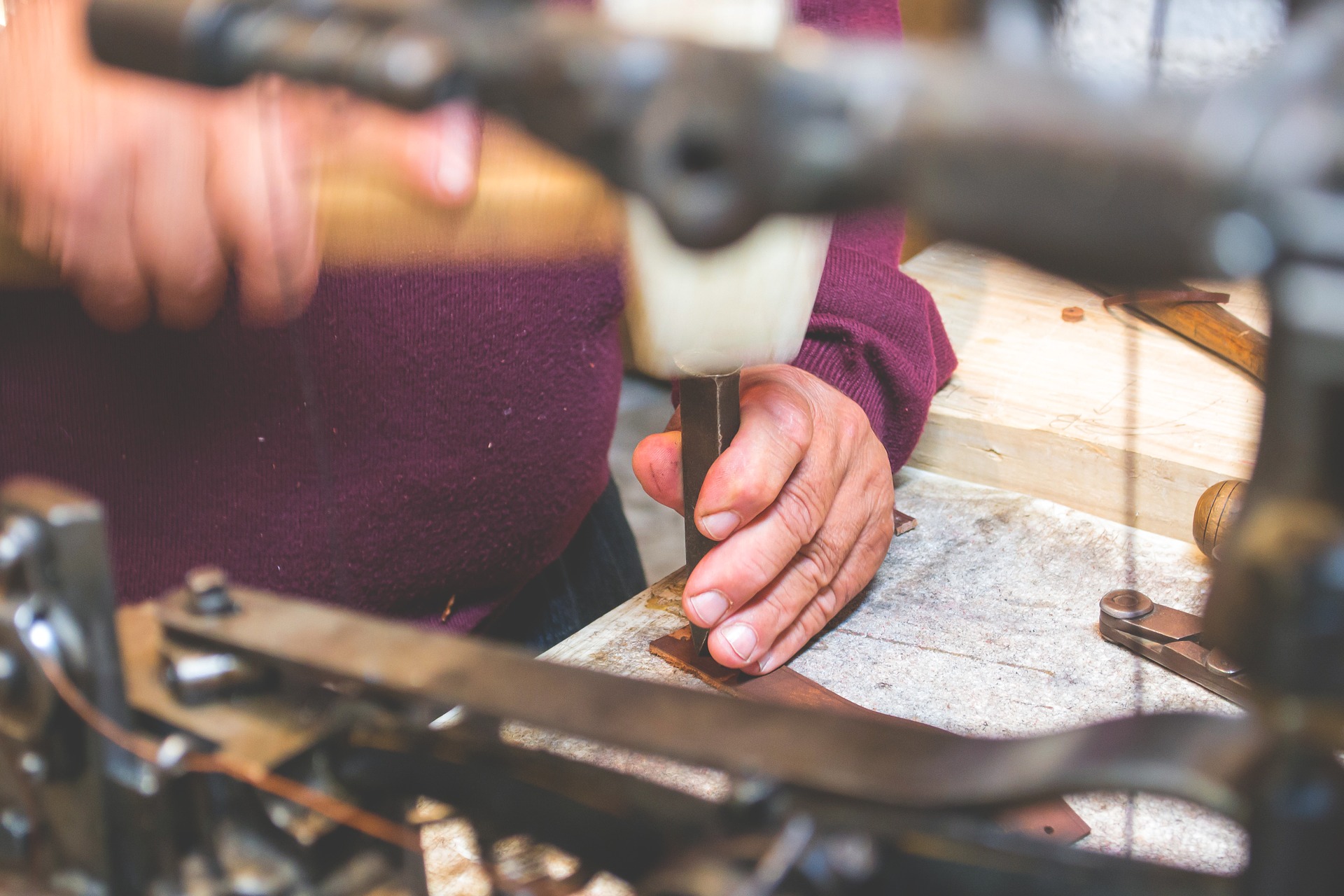
When God brought the Hebrew nation out from their life of Egyptian slavery, He gave them such favor with the Egyptians that they handed over their wealth for the asking. The Israelites walked away from their life of enslavement loaded with precious gold, silver, and bronze; fine white gossamer linen; colorful yarns; olive oil, spices, precious stones and much more.
God’s redeemed people were not just free, they were greatly enriched with a treasure God instructed them to ask for as they departed.
Once they were safely camped in the Sinai desert, God offered the Israelites a covenant relationship by which He would become their god and they, His people. He gave Moses the covenant law (the Ten Commandments). Not content to be their God at a distance, He also gave Moses detailed plans for a special tent or tabernacle to be His home in the midst of His covenant people during their wilderness time.
Moses would need much to build this small but elaborate tabernacle, its furnishings and courtyard, and to make garments for the priesthood. God told Moses to request an offering from the people:
From what you have, take an offering for the Lord. Everyone who is willing is to bring to the Lord an offering of gold, silver and bronze; blue, purple and scarlet yarn and fine linen; goat hair; ram skins dyed red and another type of durable leather; acacia wood; olive oil for the light; spices for the anointing oil and for the fragrant incense; and onyx stones and other gems to be mounted on the ephod and breast piece.
Exodus 35:4-9, NIV
The Israelite community responded generously:
Then… everyone who was willing and whose heart moved them came and brought an offering to the Lord for the work on the tent of meeting, for all its service, and for the sacred garments. All who were willing, men and women alike, came and brought gold jewelry of all kinds: brooches, earrings, rings and ornaments. They all presented their gold as a wave offering to the Lord. Everyone who had blue, purple or scarlet yarn or fine linen, or goat hair, ram skins dyed red or the other durable leather brought them. Those presenting an offering of silver or bronze brought it as an offering to the Lord, and everyone who had acacia wood for any part of the work brought it.
The leaders brought onyx stones and other gems to be mounted on the ephod and breast piece. They also brought spices and olive oil for the light and for the anointing oil and for the fragrant incense. All the Israelite men and women who were willing brought to the Lord freewill offerings for all the work the Lord through Moses had commanded them to do.
Exodus 35:20-25, 27-29 NIV
I am struck by how often Moses inserted the word willing. I believe he did it for two reasons: to reinforce how important the matter of willingness was to God, and to make clear this was indeed the nature of their offerings. In fact, the people brought so much, Moses had to send word for them to stop!
This is an amazing response from a people whose whole existence has been slavery with no hint of prosperity. Of course, it is possible they plundered the Egyptians so much that there was plenty for them AND for the tabernacle. Even so, everything they offered up was precious, given from a finite supply not likely to be replenished.
Why should this matter to you?
This episode reveals how God goes about establishing relationship with His redeemed people — with you. God does not compel you to give; He wants your gifts freely given out of a willing heart. Why? God is building a kingdom of lovers, not slaves.
God gave man free will, and has never taken it back. The God who sets men free offers a new life that has no hint of enslavement in it. God gave us His Son, but never makes us actually embrace Him. Once we do embrace the Lord, God does not make us receive the fullness of His Spirit. If we do receive the fullness of His Spirit, the Spirit does not make us obey.
At every turn, we are left in our free will to choose if, when and how much we will invest in loving this God who has so willingly given Himself to us. In our God-given freedom, we choose how much to invest in making our heart a suitable habitation for God, a place where He reveals Himself.
I wrote of this freedom in my book, They Will All Know Me:
God has rescued us from the bondage of sin and darkness, but He will not make us want Him. He doesn’t even make us be good, or make us listen to Him; He doesn’t force us to do anything!
Though He can and does act sovereignly on the hearts of men at times to accomplish His larger divine purposes (as He did with Saul on the Damascus Road), most of us are left in our freedom to do as we wish while He patiently waits for us to reach for Him.
He is not hiding from you, but He is waiting to be sought after. David charged his son Solomon as he prepared to turn the kingship over to him:
And you, my son Solomon, acknowledge the God of your father, and serve Him with wholehearted devotion and with a willing mind, for the Lord searches every heart and understands every desire and every thought. If you seek Him, He will be found by you… (1 Chronicles 28:9)
God promises that if you treat a relationship with Him as the great treasure it is, and set your desire upon Him, to love and obey Him, He will make Himself at home in you and reveal Himself to you!
Page 142, They Will All Know Me © 2016 Tonia Woolever
Jesus reinforced this promise when he said:
Anyone who loves me will obey my teaching. My Father will love them, and we will come to them and make our home with them.
John 14:23 NIV
This is not a test, it is an opportunity.
God’s call for your willing offering is not a thinly disguised test of obedience; it is a true opportunity to participate in building your covenant life together with Him. You have a part, and frankly, God honors you greatly by inviting you to build with Him. Perhaps you’ve noticed the life Christ promised did not just appear after you were saved, with no effort on your part…

The Gospel Of Moses
The tabernacle enabled relationship between God and His people under Moses. It was actually the revelation of the ministry of Jesus Christ, and how He would redeem a people for His Father. It has even been called the gospel according to Moses.
Now, after the cross, it becomes for the redeemed a great illustration of God the divine and human man sharing life. We know this because the Lord is the master of symbolism, and the tabernacle is His masterpiece.
The Holy Place in the Tabernacle is the room God designed for the priesthood to spend time near Him in His Most Holy Place. God called for three furnishings in this room, a wooden table for bread, and a wooden altar for prayer, both to be covered entirely in gold — representing the natural man (wood) covered by the divine (gold). The third furnishing was a lamp stand hammered from one piece of pure gold, to hold seven oil lamps.

Not coincidentally, the specific ornamentation commanded by God on that lamp stand added up to exactly sixty-six elements — predicting and matching the number of books that would come to make up our Bible. The Bible is an amazing creation crafted by men as to its construction, but entirely by the Holy Spirit, illuminated only by the oil and fire of His presence in the believer. God missed no opportunity for symbolism in this tabernacle!
The seven oil and wick lamps provided all the illumination in this windowless room.
The twelve loaves of consecrated bread were only for the priesthood to eat.
The little golden altar, positioned at the curtain wall separating the Most Holy Place, is where the priesthood offered prayers while burning incense. The smoke of the incense seemed to lift the prayers towards God while permeating the separating curtain with a sweet aroma. The prayers at this altar were carried to God with unique fragrance designed by God, a special recipe of spices for the incense given to Moses. It was absolutely forbidden for any other use.
Only the priest serving God in the Holy Place walked in the divine light of God. Only members of the priesthood were nourished by God’s bread, and enjoyed intimate proximity to God’s throne of grace and mercy (the ark of the Covenant in the Most Holy Place) as he prayed.

Born again into God’s spiritual priesthood
When Jesus spoke of being “born again” of the Spirit, he meant the new spirit God would create in you — the most holy place within where God’s Spirit could join your spirit.
The New Testament also speaks of you as now being part of the Lord’s spiritual priesthood, thereby inviting you to the same ministry and meeting with God. The tabernacle shows you what to expect as you turn to that place within, the holy place God created for Himself to dwell in you.
Remember, Jesus said He and the Father would move in and reveal themselves to those whose hearts are motivated by love and who act upon that love by willingly offering themselves back to God. This is how the believer, together with the Spirit, builds out and inhabits the inner tent of meeting with God: a place of revealing, of nourishing, of access.
In love a throne will be established; in faithfulness a man will sit on it — one from the house of David — one who in judging seeks justice and speeds the cause of righteousness.
Isaiah 16:5 NIV
This verse from Isaiah prophesies about Jesus, the faithful man who will sit on the throne of his ancestor David.
But it also contains the seed of God’s kingdom, His desire and plan to become the King of a people who love Him by choice, who use their freedom to willingly know, love and serve Him.
This is the way way each believer builds a personal throne for His new King.
Beloved, you are free. You don’t have to love God. No one is forcing you to surrender the precious things — your freedom, your time, your worldly loves — to build the tabernacle of fellowship with God in the inmost place of your heart.
But if you do, you will receive so much more than you ever surrender, because your greatest treasure is knowing God.
I invite you to go to that place, in faith.
To believe you will find the Spirit always there, shining His light on all you need to know and upon His Word.
To believe the Lord will satisfy your hungry heart, that He will nourish you.
To believe yours prayers are heard, and are a sweet aroma to the God who created this meeting.
To answer the call to fellowship with the Living God.
Are you willing?






Leave A Comment